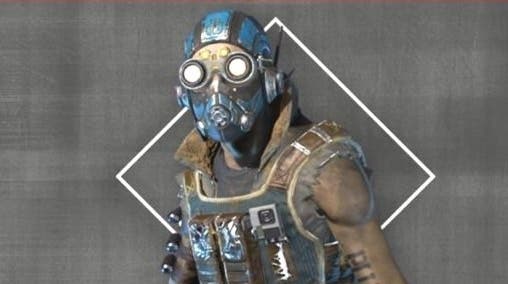Games of the Year 2019: Apex Legends and learning to love King's Canyon
Hot zone.
Over the festive break we'll be running through our top 20 picks of the year's best games, leading up to the reveal of Eurogamer's game of the year on New Year's Eve. You can find all the pieces published to date here - and thanks for joining us throughout the year!
I didn't expect to be sat here at the end of 2019 batting for a battle royale, either.
Looking back, I think Apex Legends' appeal lies in what it isn't as much as what it is. When it released, I was coming down from a four-year-long Destiny habit. Destiny remains one of my favourite all-time games, and introduced me to a comradery - and competitiveness - I'd never had before, but good lord, it's a hell of a commitment, and one I was sadly struggling to maintain as professional and familial demands ramped up mid-year. (It's also difficult to maintain momentum when your clanmates quit one by one... but that's a different article for a different day, perhaps!)
Apex Legends was - is - the antithesis of that. Whereas Destiny demands weekly raids and god-roll-seeking grinding, Apex is the same if I play it tomorrow or next week or even the week after that. Though adorned with passes and seasons and cosmetic MTX, your capacity to win has little to do with money spent or the hours you're able to devote to it. Your guns and armour can't be improved by grinding. Loadouts come down to RNG, not perseverance.
So while PUBG was my first taste of battle royale freedom, the floaty gunplay and server instability tempered the fun. But then Respawn's own BR abruptly arrived, slick and polished and with a smorgasbord of quality of life tweaks so impressive, even Fortnite later pinched them. More than anything else, though, Respawn had given me the freedom of a battle royale with the satisfying FPS action that was lacking in Fortnite and PUBG. And I didn't need to grind to keep up, either.
And oh, I loved getting to know King's Canyon, discovering its secrets and shortcuts, learning a little more about its unique terrain with every match. I loved getting to know the quickest way in, and out, of built-up areas, experimenting - reluctantly at first, admittedly - with its diverse roster of characters and their unique abilities.
Before Apex Legends, I couldn't comprehend how anyone could enjoy traipsing over the same map again and again. But I failed to appreciate how that organic familiarity gives you a competitive edge. We now know how high we can climb each rockface. We remember where every zipline stops and starts. We've identified which areas - at least potentially, anyway - offer the best gear, hot zone or otherwise. We also know the most expeditious paths to outrun the circle. All of that can only come with experience, yes, yet it never feels arduous or grindy. With tighter maps, smaller lobbies, and faster matches, you'll learn, and adapt, almost unconsciously as you play.
Most of all, though? Apex's key lies in its simplicity. It's a free, competitive experience that's a riot to play with pals, and while it's easy to play it's tricky to master, taking PUBG's BR foundations and expanding it with canny tweaks and an intuitive UI. And while its journey has not been faultless I can't wait to find out what Respawn has planned for 2020.







.png?width=291&height=164&fit=crop&quality=80&format=jpg&auto=webp)


